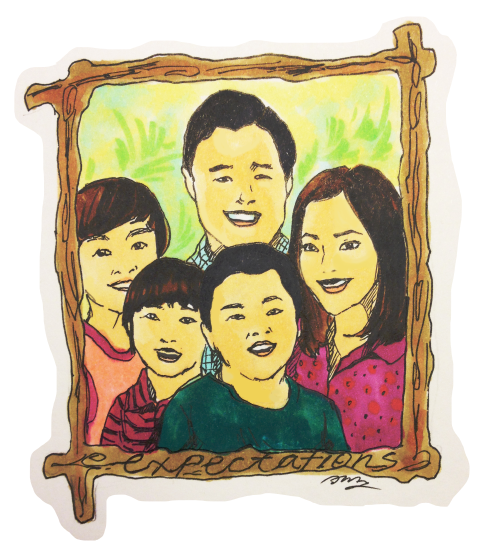The airing of the show Fresh Off The Boat (FOTB) on ABC was met with much fanfare and hype. The show—based off the life of chef Eddie Huang, as numerous blog sites were quick to note—was the first TV show in American mainstream media starring Asian Americans since All-American Girl (1994) starring Margaret Cho. Though Cho’s show was cut from the network after one season, FOTB currently has strong ratings and is being applauded for its ability to make racial jokes without being racist.
I had always been slightly dismissive of the numerous studies connecting media representation and self-validation. Growing up as an Asian Canadian, I had known no shows starring people who “looked like me,” but I didn’t feel deprived. I prided myself on being race-blind, focusing on the universal themes of shows instead of jibes about the race of my protagonist. But I surprised myself with the fervour with which I approached this show. When I read about its inception on media sites, I scrambled to watch the first episode, and then the next. I had not realized my craving for a protagonist who looks like me until I had access to one. I didn’t realize how good it felt to see Jessica Huang, portrayed by Constance Wu, eat sliced apple straight off the blade of a knife while home tutoring her children. All the “Asian mom” moments I had joked about with my friends—the shared moments of, “Your mom does that too?”—were finally on the screen for thousands of people to see. I had not realized how much I needed that validation, of what constituted ‘normal’ behaviour for ‘normal’ families.
There has been plenty of discourse regarding how FOTB should not be the messiah of representation of Asian North Americans. Both the creators of the show and the actors have come towards the media denying their intention to be representative of all Asian American family experiences. Instead, they urge critics to promote a more diverse range of Asian talent and diffuse the need for FOTB to be a beacon of representation.
In many respects, I should not be able to relate to this show at all. I could add my two cents to the babble of complaints of the show’s fake Taiwanese accents or the forced frugality jokes. A “stereotypical Asian” child like myself would have still been hard pressed to understand the hardships of young Eddie, who deals with being an Asian minority in suburban Orlando—I grew up in a racially diverse neighbourhood of Toronto. But universal themes of childhood isolation, and even the first brush with racism (Eddie is called a “chink” by a classmate in the third episode of the show—I was the target of bullying as “that Chinese kid” in third grade), not to mention the show’s absurd twists of humour, make FOTB generally excellent in its own right.
Although I support the arguments against putting pressure on FOTB to be the “model show” for the “model ethnicity,” I can also empathize with the clamour of voices urging the show to depict their families in such-and-such scenarios. The voices are urgent and impatient, vibrant with the sense of possibility that this one show has conferred, as if trying to make up for 20 years of lost time. However, what they are asking of FOTB would be called, in my mother’s words, “trying to reach the sky in one step.” It’s important to take a breath and channel those newly realized energies into other channels—supporting new media initiatives with minority majority casts, becoming patrons of upcoming talent, and continuing the dialogue around racial issues. Here’s to hoping that in the near future, shows and movies starring minorities will become so common that casting choices won’t be the primary label they are known for.









